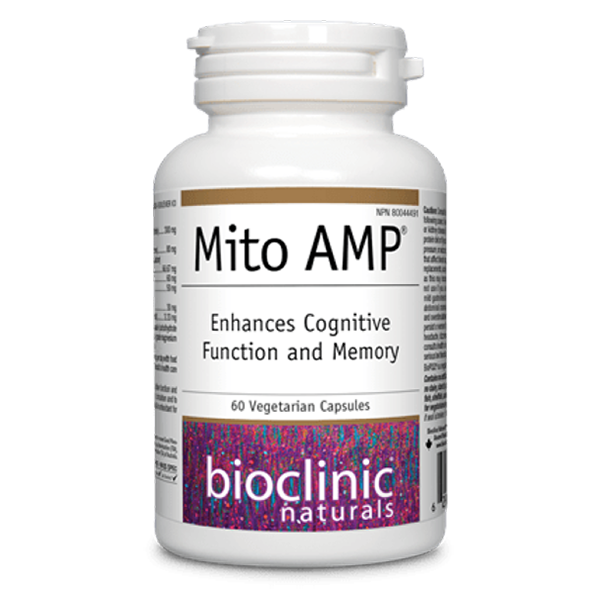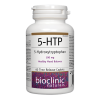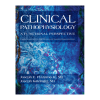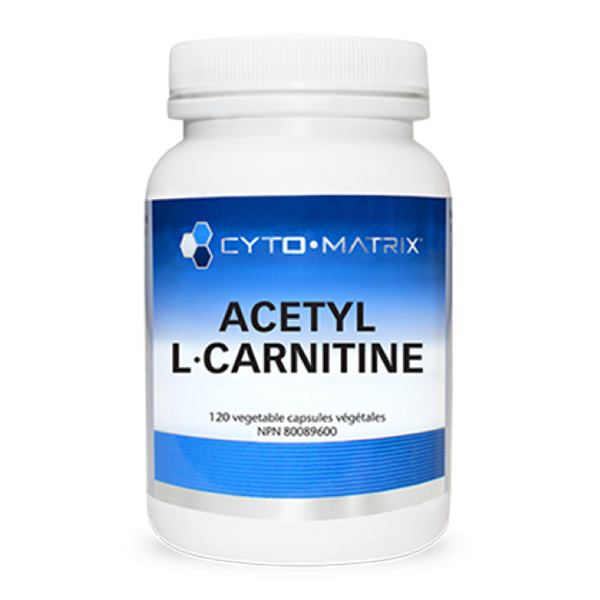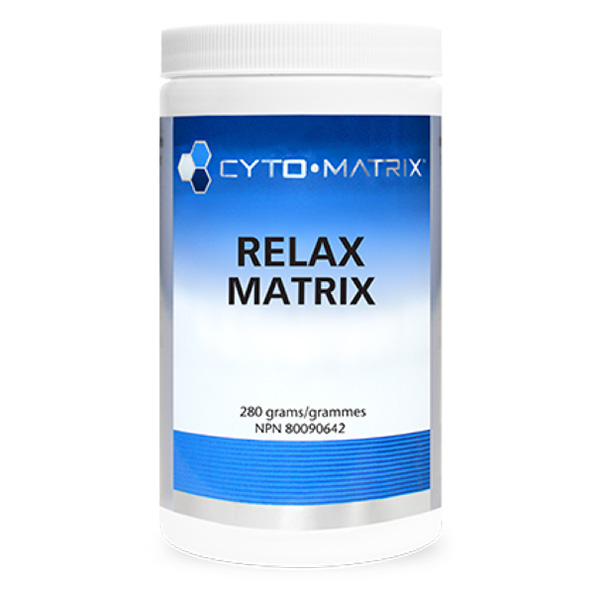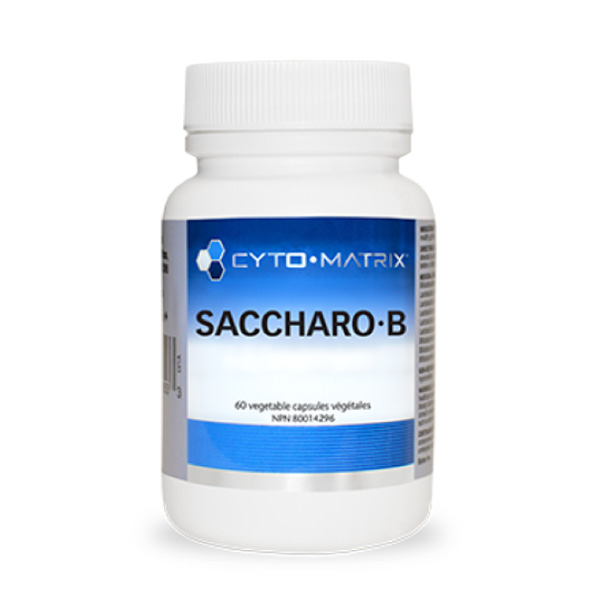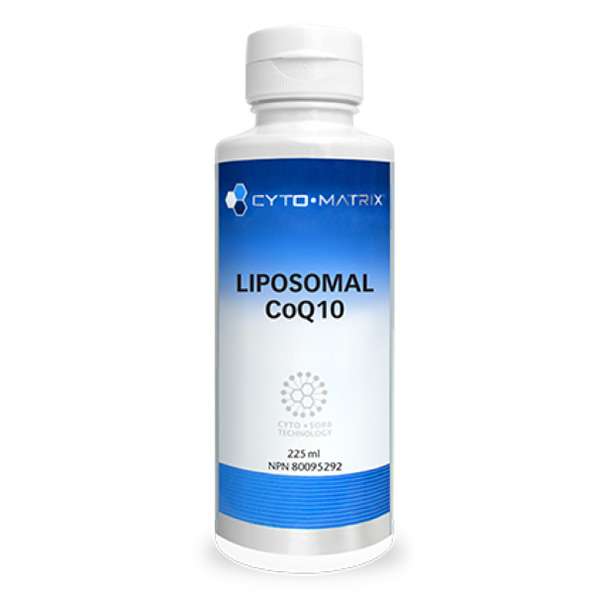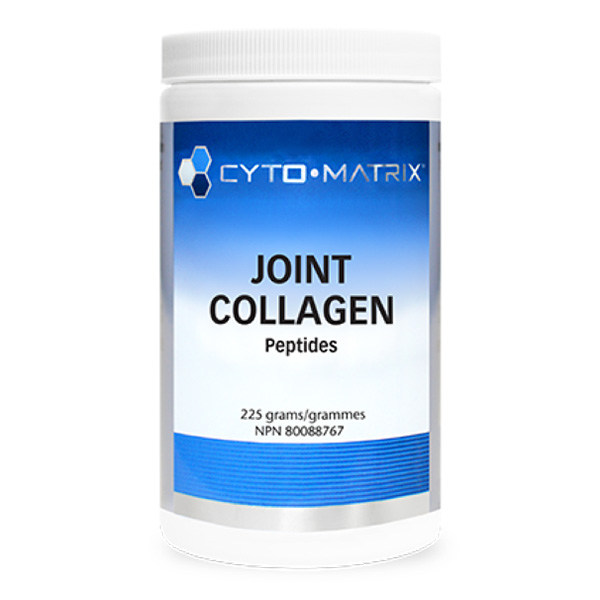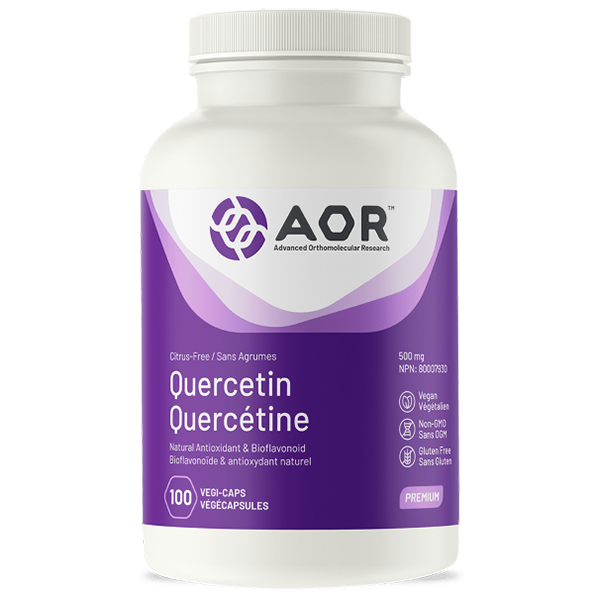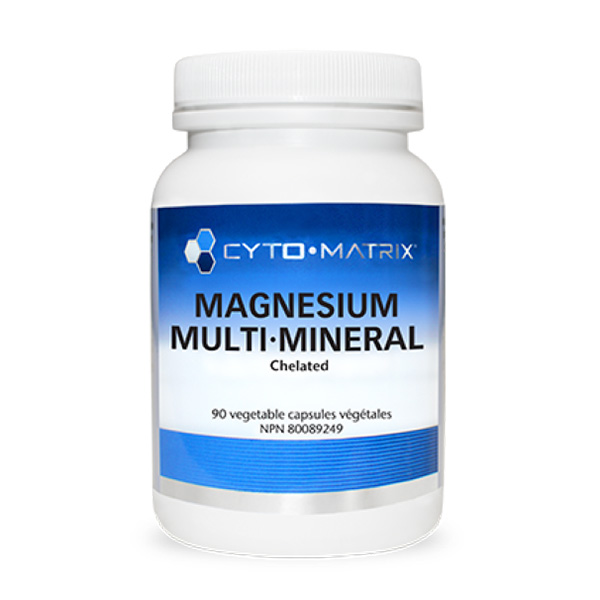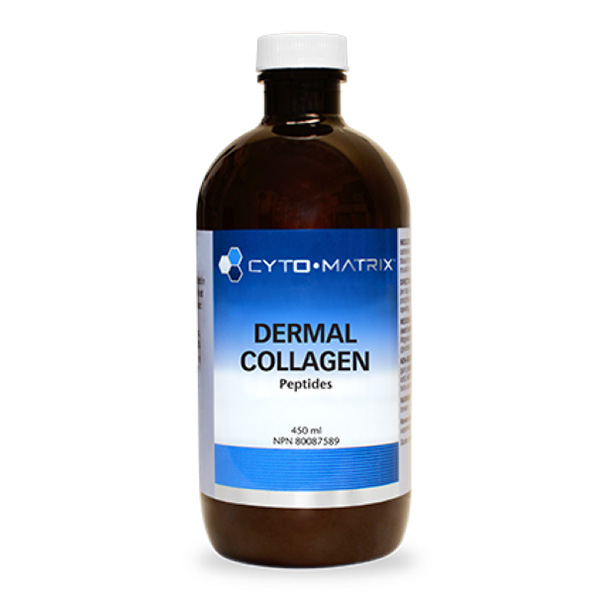Bioclinic – Mito AMP

$40.99
Enhances Cognitive Function and Memory
60 Vegetarian Capsules ( SKU: 9241, NPN: 80044491 )
Benefits
- CoQ10 has a beneficial role in the treatment of various chronic disordersthat are highlighted by an impairment in mitochondrial bioenergetics and/orincreased oxidative stress, such as CHF, Parkinson’s, and migraine
- R-alpha-lipoic acid may have better bioavailability than the synthetic mixture
- In vivo studies have noted that combinations of ALC and R-alpha-lipoicacid act synergistically in preventing mitochondrial decay
- Standardized Ginkgo biloba extract promotes cognitive functioning,neuropsychiatric symptoms, and functional abilities in those with vascularand Alzheimer’s dementia
- Resveratrol, the potent antioxidant found in Japanese Knotweed, improvesmuscle mitochondrial respiration in obese humans, as well as severalcardiometabolic risk factors
- Clinical trials indicate that administration of grape seed proanthocyanidinsstimulated mitochondrial function in the skeletal muscle of obese Zuckerrats and improved cognitive function in older adults
- Suitable for vegetarians/vegans
Feature Summary
Oxidative damage to the mitochondria is a major factor in cellular aging, along with neurological decay. While lifestyleinterventions, such as calorie restriction, help improve mitochondrial function in young non-obese adults, certainsupplements such as L-carnitine are also of therapeutic benefit. The salt of L-carnitine, called acetyl-L-carnitine (ALC),is the preferred form for conditions of disease and aging as it has better absorption and readily crosses the blood-brainbarrier. ALC has been shown not only to improve mood, but also to exert a significant function in the disorders of aging,including fatigue, hypertension, insulin resistance, diabetic neuropathy, and dementia.
Mito AMP also provides Ginkgo biloba extract, resveratrol, R-alpha-lipoic acid, and grape seed proanthocyanidins,all of which modulate mitochondrial function, enhance cognitive function, and/or reduce inflammation associated withcognitive decline. Pyrroloquinoline quinone (PQQ) plays a key role in mitochondrial biogenesis via cell signalling (PGC-1alpha), with clinical trials showing improved cerebral blood flow and brain function, improved memory when combinedwith CoQ10, as well as increased vigour and a significant reduction in symptoms of fatigue, tension, low mood,and confusion.
Medicinal Ingredients
| Serving Size: 1 Vegetarian Capsule | |
| Servings per Container: 60 | |
| Each Capsule Contains: | |
| Acetylcarnitine (N-acetyl-L-carnitine Hydrochloride) | 300 mg |
| Ginkgo Biloba Extract (Ginkgo biloba) (leaf) (24% Flavone Glycosides, 6% Terpene Lactones) | 80 mg |
| Japanese Knotweed Extract (Polygonum cuspidatum) (root) (20% Trans-Resveratrol) | 66.67 mg |
| Coenzyme Q10 (Microorganism) | 60 mg |
| R-Alpha-Lipoic Acid | 50 mg |
| Grape Seed Extract (Vitis vinifera) (seed) (80% Oligomeric Proanthocyanidins) | 30 mg |
| BioPQQ® (Pyrroloquinoline Quinone Disodium Salt) | 3.33 mg |
Non-Medicinal Ingredients
Vegetarian capsule (carbohydrate gum [cellulose], purified water), silica, vegetable grademagnesium stearate (lubricant), microcrystalline cellulose.
Allergens:
Contains no artificial colours, preservatives, or sweeteners; no dairy, starch, sugar, wheat, gluten, yeast, soy, corn,egg, fish, shellfish, animal products, salt, tree nuts, or GMOs. Suitable for vegetarians/vegans.
Recommended Use:
Recommended Adult Dose: 1 capsule 3 times per day with food or as directed by a health care practitioner. Consulta health care practitioner for use beyond 4 weeks.
Contraindications
Consult a health care practitioner prior to use in the following cases: if you have diabetes, a seizure disorder, or liver or kidney disease, if you have been instructed to follow a low protein diet or if you are taking medication for diabetes, high blood pressure, or seizures. Do not use if you are taking health products that affect blood coagulation (e.g., blood thinners, clotting factor replacements, acetylsalicylic acid, ibuprofen, fish oils, vitamin E) as this may increase the risk of spontaneous bleeding. Do not use if you are pregnant or breastfeeding. May cause mild gastrointestinal symptoms (transient nausea, vomiting, abdominal cramps and diarrhea). Feelings of sleeplessness and overstimulation may occur; discontinue use if such feelings persist or worsen. Keep out of reach of children.
Drug Interactions
ALC may help with opioid withdrawal. Ginkgo biloba extract (GBE) significantly influences talinolol(beta 1 adrenoceptor blocker) maximum plasma concentration, likely a result of p-glycoprotein activity. GBE induces CYP3Ametabolism and reduces midazolam and tolbutamide concentrations.
- Ames BN, Liu J. Delaying the mitochondrial decay of aging with acetylcarnitine. Annals NY Acad Sci. 2004;1033:108-16.
- Civitarese AE, Carling S, Heilbronn LK, Hulver MH, Ukropcova B, Deutsch WA, Smith SR, Ravussin E; CALERIE Pennington Team. Calorie restriction increases muscle mitochondrial biogenesis in healthy humans. PLoS Med. 2007;4:e76.
- Kido Y, et al. Functional relevance of carnitine transporter OCTN2 to brain distribution of L-carnitine and acetyl-L-carnitine across the blood brain barrier. J. Neurochem. 2001;79: 959-969.
- Ruggenenti P, Cattaneo D, Loriga G, Ledda F, Motterlini N, Gherardi G, Orisio S, Remuzzi G. Ameliorating hypertension and insulin resistance in subjects at increased cardiovascular risk: effects of acetyl-L-carnitine therapy. Hypertension. 2009;54:567-74.
- Malaguarnera M, Gargante MP, Cristaldi E, Colonna V, Messano M, Koverech A, Neri S, Vacante M, Cammalleri L, Motta M. Acetyl L-carnitine (ALC) treatment in elderly patients with fatigue. Arch Gerontol Geriatr. 2008;46:181-90.
- Thal LJ, Carta A, Clarke WR, Ferris SH, Friedland RP, Petersen RC, Pettegrew JW, Pfeiffer E, Raskind MA, Sano M, Tuszynski MH, Woolson RF. A 1-year multicenter placebo-controlled study of acetyl-L-carnitine in patients with Alzheimer’s disease. Neurology. 1996;47:705-11.
- De Grandis D, Minardi C. Acetyl-L-carnitine (levacecarnine) in the treatment of diabetic neuropathy. A long-term, randomised, double-blind, placebo-controlled study. Drugs R D. 2002;3:223-31.
- Memeo A, Loiero M. Thioctic acid and acetyl-L-carnitine in the treatment of sciatic pain caused by a herniated disc: a randomized, double-blind, comparative study. Clin Drug Investig. 2008;28:495-500.
- Rucker R, Chowanadisai W, Nakano M. Potential physiological importance of pyrroloquinoline quinone. Altern Med Rev. 2009;14:268-77.
- Nakano M, Yamamoto T, et al. Effects of Oral Supplementation with Pyrroloquinoline Quinone on Stress, Fatigue, and Sleep. Functional Foods in Health and Disease. 2012; 2:307-324.
- Littarru GP, Tiano L. Clinical aspects of coenzyme Q10: an update. Curr Opin Clin Nutr Metab Care. 2005;8:641-6.
- Keith DJ, Butler JA, Bemer B, Dixon B, Johnson S, Garrard M, Sudakin DL, Christensen JM, Pereira C, Hagen TM. Age and gender dependent bioavailability of R- and R, S-lipoic acid: A pilot study. Pharmacol Res. 2012;66:199-206.
- Long J, Gao F, Tong L, Cotman CW, Ames BN, Liu J. Mitochondrial decay in the brains of old rats: ameliorating effect of alpha-lipoic acid and acetyl-L-carnitine. Neurochem Res. 2009;34:755-63.
- Ihl R, Tribanek M, Bachinskaya N; GOTADAY Study Group. Efficacy and tolerability of a once daily formulation of Ginkgo biloba extract EGb 761® in Alzheimer’s disease and vascular dementia: results from a randomised controlled trial. Pharmacopsychiatry. 2012;45:41-6.
- Witte AV, Kerti L, Margulies DS, Flöel A. Effects of resveratrol on memory performance, hippocampal functional connectivity, and glucose metabolism in healthy older adults. J Neurosci. 2014 Jun 4;34(23):7862-70.
- Pajuelo D, Fernández-Iglesias A, Díaz S, Quesada H, Arola-Arnal A, Bladé C, Salvadó J, Arola L. Improvement of mitochondrial function in muscle of genetically obese rats after chronic supplementation with proanthocyanidins. J Agric Food Chem. 2011;59:8491-8.
- Janiri L, Martinotti G, Tonioni F, Ghelardini C, Nicolai R, Galeotti N, Mosconi L, Calvani M, Bartolini A, Iannoni E. Acetyl-L-carnitine in the management of pain during methadone withdrawal syndrome. Clin Neuropharmacol. 2009;32:35-40.
- Fan L, Tao GY, Wang G, Chen Y, Zhang W, He YJ, Li Q, Lei HP, Jiang F, Hu DL, Huang YF, Zhou HH. Effects of Ginkgo biloba extract ingestion on the pharmacokinetics of talinolol in healthy Chinese volunteers. Ann Pharmacother. 2009;43:944-9.
- Robertson SM, Davey RT, Voell J, Formentini E, Alfaro RM, Penzak SR. Effect of Ginkgo biloba extract on lopinavir, midazolam and fexofenadine pharmacokinetics in healthy subjects. Curr Med Res Opin. 2008;24:591-9.
- Uchida S, Yamada H, Li XD, Maruyama S, Ohmori Y, Oki T, Watanabe H, Umegaki K, Ohashi K, Yamada S. Effects of Ginkgo biloba extract on pharmacokinetics and pharmacodynamics of tolbutamide and midazolam in healthy volunteers. J Clin Pharmacol. 2006;46:1290-8.
Related Documents
| Weight | 0.1 kg |
|---|

